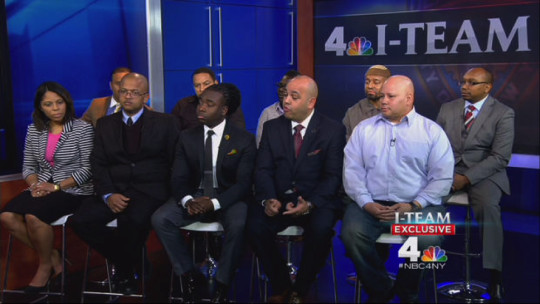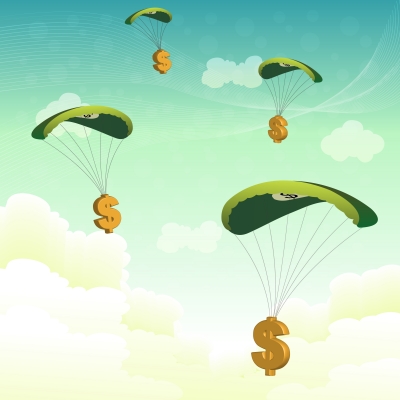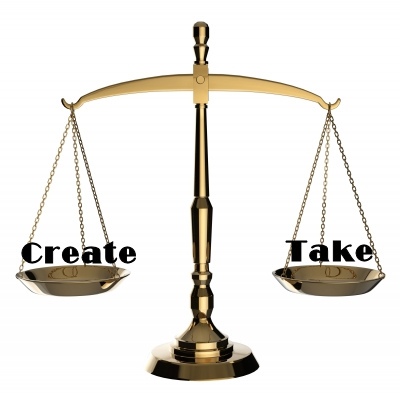Most Americans are under the mistaken assumption that we are a free capitalist country. And because of the many social problems that currently exist they mistakenly believe that the solution is “Socialism”. Unfortunately, in addition to not knowing who won the Civil War most College students think that “Socialism” means being concerned about social issues.
In fact, Socialism is a system where the means of production is owned (or controlled) by the Government. Unfortunately like in the George Orwell book 1984, the definition of words is being slowly changed so as to add confusion rather than clarification to the issue. If you Google the words “Definition of Socialism” you will get the following definition: a political and economic theory of social organization that advocates that the means of production, distribution, and exchange should be owned or regulated by the community as a whole. Doesn’t that sound sweet? Everyone owns everything and the world is full of thornless roses and butterflies. No one has to work… manna just falls from heaven into our mouths and everyone is rich and happy.
Well, I hate to break the news to you but even if it were possible to start out that way it wouldn’t last long. How do you organize something that is owned by everyone? How do you ensure that everyone gets their fair share? The problem is enforcement… someone has to be in charge…
Unfortunately, as soon as you put someone in control of the distribution of wealth… greedy, power-hungry individuals will gain control of it and take the majority share for themselves and their friends. Also as soon as you centralize the means of production it becomes inefficient and produces less… making everyone poorer. A lesson learned from the former Soviet Union (i.e. Soviet Socialist Republic): When the government mandated that a factory produce 1 million nails a month they produced a million tiny worthless nails. So the government mandated that they produce 100,000 pounds of nails so they produced 100,000 (equally worthless) 1 pound nails. On the other hand, a truly capitalist factory must produce what the consumer wants or it will go out of business.
In today’s article by Chris Campbell, we look at how far along the road to socialism we have actually come in spite of thinking of ourselves as a Capitalist country. ~Tim McMahon, Editor.
Dear Democratic Socialist,
You probably don’t know us. And you’ve likely never heard of this newsletter — or our research service — before.
But we are, we would like you to know, equally as impassioned as you are about helping others lift themselves out of poverty.
And for that reason, we ask that you lend us your ear today to quickly explain our side.
We want to discuss with you, for a few moments, the truth about free markets. You might disagree with some of what we say, but you may also find some of it pleasantly surprising.
We hope you, in the end, lean toward the latter.
The free market, to us, means that 318 million Davids will… finally… be able to compete with the nation’s Goliaths. And raise their own, and everyone else’s, living standards in the process.
Many mistakenly believe we already have a free-market economy. And since we have plenty of ills to go around these days, many, understandably, believe the free market must be the source of those ills.
Yet nothing, in our humble opinions, could be further from the truth. Allow us to explain with a few examples…
ONE: The Freedom to Work Without Permission
First of all, in a free market, not one soul has the right to arrest (and kill) men like Eric Garner for selling “loosies” on the sidewalk. To do so would be a horrid and unnatural offense against the public.
Eric Garner, as you know, was arrested and subsequently murdered because the government wasn’t getting its cut on the sales of those ciggies.
If this sounds a little bit like mafia behavior, you’re not far off. (See: “We are the predators, they are they prey” video here where a group of NYPD whistleblowers admit that they prey on the defenseless, namely in poor black communities, in the name of quotas. And literally admit they are like the mafia.)
“At the end of the month, these officers who don’t have that arrest or those few summonses, they’re pressured to find something,” an NYPD officer says
The free market means that if a homeless man wants to make a living for himself shining shoes, just like Ronnie Forston, he doesn’t have to buy a $500 government permission slip (AKA permit) to do so or else risk getting arrested.
Forston, a homeless man in Atlanta was arrested seven times in 18 months for shining shoes on the street because it’s… wait for it… illegal to do so on public property. But, wait. Public property, we are told, is preserved for the people’s interest. (Yeah, when you’re given permission first and pay up. Unless, of course, you have friends in high places.)
We wonder, then: How is Forston supposed to lift himself from poverty if he isn’t given even the dignity to work for a living in the public square? Would the state rather him beg? Well, obviously not. Even that’s becoming illegal in many cities, too.
What? Being poor is a crime now?
A free market means children can run lemonade stands without getting hassled by the cops. (See: The Inexplicable War on Lemonade Stands.) They can earn their own money, and they can learn valuable lessons in the process. Including the monetary and emotional gratification of serving their communities with something, it wants and enjoys.
The free market means that starting a business does not have to be an expensive or complex ordeal. In fact, in a free market, selling what others want can be extremely cheap and simple when there is no one to report to or ask permission from — often as simple, in fact, as a lemonade stand.
The free market also means that individuals will no longer have to pay the government rent in order to keep their land — AKA property taxes.
Yes, the rent is too damn high. And property taxes (along with zoning restrictions, for that matter) aren’t helping.
(Also, while we’re on the subject, check out why HUD wants to ban people from living in small homes or RVs.)
TWO: The Freedom to Pursue Your Own Interests and Passions
A free market means you are more free to pursue your own interests. It means you have more opportunities to take your passion into the marketplace, and, possibly, never have to really work a day in your life.
That is if you believe Confucius.
In a free market, unhampered by arbitrary rules, individuals have more opportunities to pursue their own passions without being forced into a few select jobs, where their labor is more likely to be exploited.
An individual is able to provide to his or her “village” (local or global, doesn’t matter in the digital age) value that’s based upon his or her interests, unique skills, and acuities. This, as luck would have it, is the best possible scenario for the working-class and the poor — not so much for the fantastically rich.
The elites actually hate the idea of a free market. Which is why, we assume, there’s such a rally against it. (More on why they hate it in a moment.)
Three words sum up this type of system. And these words might summon up some misconceptions you might have about what they mean.
This system is called, as we define it, “free-market capitalism.” Which is nothing more than the freedom to own and trade private property — large and small — freely. (Money is also considered property.)
Today, we have quite the opposite of free-market capitalism. We are overburdened by rules, oftentimes so complex that small businesses must hire lawyers to make sense of them. Which, of course, gets in the way of the small entrepreneur’s ability to serve his or her community.
Because of this, poor individuals are at a vast disadvantage. And not just because of all of the regulations they face upon trying to enter the market.
They are also forced to work harder just to maintain their penniless lifestyles. Why? Terrible government monetary policy.
THREE: Freedom From Inflation and Rising Prices
A free market means that you have sound, stable money that holds its value and doesn’t inflate away over time. It also means the Elite cannot mess with the money supply for its own benefit, which it currently does, using government power.
Inflation, despite what you’ve been told, is not a natural market phenomenon. In our current market, which, again, is far from free, inflation is a matter of federal monetary policy.
You see, the Federal Reserve holds a disastrously absurd notion that falling prices (deflation) is a bad thing because when prices fall, people tend to save more and spend less.
So, in order to “fix” this “problem,” it causes the prices on everything to rise by devaluing the dollar, forcing people to spend more money than they did last year on the same exact things. (Venezuela’s current rapid inflation — due to overregulation of the marketplace — is getting more and more expensive by the day.)
Inflation, as a result, often pushes people into spending money that they don’t have just to maintain last year’s lifestyle, forcing them into financial enslavement by the banks or the State. (Some would say they’re one and the same these days, but we won’t split hairs here.)
Why, if it’s so disastrous, does the Federal Reserve inflate the money supply, then? Well, either our “leaders” at the Fed are incredibly stupid and think that they are actually helping, or this banking system is the largest and most widespread hoax perpetrated upon a single country. (And the world, for that matter.)
We tend to lean toward the latter.
(Have you ever wondered, by the way, who we owe most of the mind-blowingly high national debt to? It’s a good question.)
Inevitably, as you can see, this monetary structure would, over time, make the “Average Joe” poorer. Which is one reason why the old adage the rich get richer, the poor get poorer remains true.
Without inflation, via a free market, poor people won’t, year by year, get poorer. Even when they work the same amount of hours per week, as they do now. This solves, you might notice, the minimum-wage problem in one fell swoop.
But there’s another benefit…
Four: The Freedom of the Community
The free market, as we’ve discussed thus far, is free from artificially rising prices and oppressive, unnecessary restrictions.
It keeps more money in the community, rather than being taxed away to serve the interests of D.C. politicians, local lawmakers and cronyist global corporate structures.
How much of that money, by the way, that’s taxed away do you think is used to serve the people in your community?
This probably won’t shock you, but for perspective: The average American pays 10 cents a day to fund food stamps while the average family pays $6,000 a year to fund corporate welfare.
Surprised? Didn’t think so.
The free market means, simply, the government has no business in your business. And it will no longer be able to take from everyone and leave scraps on the floor for the poor to lap up.
Instead, everyone will have more freedom to choose, along with more prosperity at hand — and we will all benefit.
Five: Freedom to Choose
A free market means everyone — from rich to poor — has more choice (a natural product of open competition) in their everyday lives — and in their communities.
In a free market, you could buy your groceries from “arabbers” who roam the streets with ponies pulling vegetable carts. (Hey, it happens.)
Baltimore, from where I write this letter to you today, once had a rich tradition of arabbers providing fresh produce at low cost to those who lived in impoverished food deserts. Over the years, this filled a tremendous need for many who have had easy access to preservative-filled junk food — and little access to real, fresh produce.
Unfortunately, over time, the local government has phased these arabbers out.
Just last year, in fact, the police confiscated 15 horses from some of Baltimore’s last few arabbers on the grounds that the horses weren’t being taken care of properly. A year later, in court, by the government’s own admission, it was uncovered that this wasn’t true. The horses were in fine health and the raid was illegal. But by then, it didn’t matter. They had already been adopted away.
But that’s one example of many of the state taking things that doesn’t belong to it — often to serve its cronyist interests. (See: All the horrible and life-shattering examples of eminent domain where government steals family land and homes to give to private business.)
Which leads us to number five…
Six: Freedom From Those Who Are Free From Unaccountability
What Baltimore city did to these arabbers is textbook theft, an offense in which anyone outside of the government would be thrown in a cage for.
But, of course, in the end, the men didn’t get their horses back, the overall health of those in food deserts in Baltimore are worse off because of it, and not a soul was held responsible.
In a truly unfettered market, you will be able to buy food from street food vendors, who will, naturally, be able to afford to sell for cheaper than the grocery store, due to few overhead costs.
Anyone with a few bucks in his pocket and a makeshift table, if unfettered, can become a street vendor. Just as Ronnie Forston could become the best shoe-shiner in the city, if only the coppers would stop throwing him in the slammer.
It is up to the people whether or not they buy from Ronnie — not the police. The community members will regulate the marketplace themselves by reputation and the ever-powerful word of mouth. Consumers will ask the community if the man with the makeshift table can be trusted — “Can that old Ronnie really shine shoes, as well as everyone, says?” — before they purchase.
Even if Ronnie ends up being terrible at spit-polishing shoes, no matter what he does, if he provides the people with what they want at a price a touch higher than what he invested, he will, undoubtedly, make money.
Rocket science it is not.
And Ronnie will realize, possibly for the first time in his life, the biggest perk of free enterprise, which is number five…
Seven: Freedom.
In a free market, the man with the makeshift table will begin to notice that all the money he is making has no strings attached.
He discovers that, since he earned it on his own, he is free to do what he wants with it without reporting it to a soul. This gives him a sense of freedom and responsibility. And it could very well be the first feeling of autonomy he has had in his life. And that alone, in an instant, has the power to change the direction of his path.
And the police — or anyone else, for that matter — can’t hold Ronnie back. Why? Because it’s not a bit of their business. Business is the business of the individuals involved — not uninvited third parties, including government.
Moreover, only in a free market does democratic socialism truly become possible on a localized, yet widespread scale. Employee-owned cooperatives already exist and thrive using direct democracy and aspects of socialism. And they would, without doubt, flourish in a free market. The first example that comes to mind is the collectively-managed bookstore and cafe in Baltimore called Red Emma’s, right down the street from our pro-capitalist headquarters.
In a free market, in summary, people are free to do as they wish, capitalists and socialists alike, so long as they accept responsibility for the consequences of their actions. They should not, by law, hurt people and/or take their stuff.
That is what the free market means to us.
Which is why the free market, in our eyes, is the only acceptable choice.
We should want to welcome the impoverished into the marketplace to have the same privileges that we enjoy. Which, by privileges, we mean, simply, the advantages of opportunity and free choice.
Which is what we, libertarians, call liberty. And liberty is the most powerful right we can wish for. Simply because, by its nature, it extends itself to everyone and does not discriminate.
Liberty assumes that each individual owns his or her own property, body, mind and spirit. It assumes that individuals know themselves and their communities better than self-serving bureaucrats, and can become more of themselves with fewer artificial boundaries in the way.
Liberty allows people of all races, sexes and creeds to cooperate in an uprising of individual and supra-individual living standards.
The rising tide of self-interest, provided by a vast freedom to choose, lifts all boats. Liberty, we say, is how the meek shall inherit the Earth.
Viva la revolución? No.
Viva la libre mercado. Long live the free market!
This article originally appeared in Laissez Faire Today and is reprinted under Creative Commons, Attribution.
[Ed. note: If you’re interested in reading more along these lines, check out their research service called Laissez Faire Letter at this website.]





